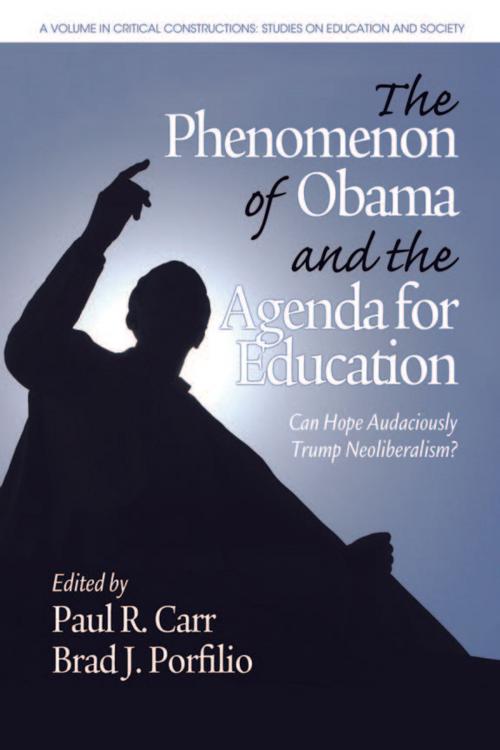The Phenomenon of Obama and the Agenda for Education
Can Hope Audaciously Trump Neoliberalism?
Nonfiction, Reference & Language, Education & Teaching, Educational Theory, Aims & Objectives, Administration| Author: | ISBN: | 9781617354526 | |
| Publisher: | Information Age Publishing | Publication: | May 1, 2011 |
| Imprint: | Information Age Publishing | Language: | English |
| Author: | |
| ISBN: | 9781617354526 |
| Publisher: | Information Age Publishing |
| Publication: | May 1, 2011 |
| Imprint: | Information Age Publishing |
| Language: | English |
Who should read this book? Anyone who is touched by public education teachers, administrators, teachereducators, students, parents, politicians, pundits, and citizens ought to read this book. It will speak to educators, policymakers and citizens who are concerned about the future of education and its relation to a robust, participatory democracy. The perspectives offered by a wonderfully diverse collection of contributors provide a glimpse into the complex, multilayered factors that shape, and are shaped by, institutions of schooling today. The analyses presented in this text are critical of how globalization and neoliberalism exert increasing levels of control over the public institutions meant to support the common good. Readers of this book will be well prepared to participate in the dialogue that will influence the future of public education in this nation a dialogue that must seek the kind of change that represents hope for all students. As for the question contained in the title of the bookCan hope audaciously trump neoliberalism?, Carr and Porfilio develop a framework that integrates the work of the contributors, including Christine Sleeter and Dennis Carlson, who wrote the forward and afterword respectively, that problematizes how the Obama administration has presented an extremely constrained, conservative notion of change in and through education. The rhetoric has not been matched by meaningful, tangible, transformative proposals, policies and programs aimed at transformative change. There are many reasons for this, and, according to the contributors to this book, it is clear that neoliberalism is a major obstacle to stimulating the hope that so many have been hoping for. Addressing systemic inequities embedded within neoliberalism, Carr and Porfilio argue, is key to achieving the hope so brilliantly presented by Obama during the campaign that brought him to the presidency.
Who should read this book? Anyone who is touched by public education teachers, administrators, teachereducators, students, parents, politicians, pundits, and citizens ought to read this book. It will speak to educators, policymakers and citizens who are concerned about the future of education and its relation to a robust, participatory democracy. The perspectives offered by a wonderfully diverse collection of contributors provide a glimpse into the complex, multilayered factors that shape, and are shaped by, institutions of schooling today. The analyses presented in this text are critical of how globalization and neoliberalism exert increasing levels of control over the public institutions meant to support the common good. Readers of this book will be well prepared to participate in the dialogue that will influence the future of public education in this nation a dialogue that must seek the kind of change that represents hope for all students. As for the question contained in the title of the bookCan hope audaciously trump neoliberalism?, Carr and Porfilio develop a framework that integrates the work of the contributors, including Christine Sleeter and Dennis Carlson, who wrote the forward and afterword respectively, that problematizes how the Obama administration has presented an extremely constrained, conservative notion of change in and through education. The rhetoric has not been matched by meaningful, tangible, transformative proposals, policies and programs aimed at transformative change. There are many reasons for this, and, according to the contributors to this book, it is clear that neoliberalism is a major obstacle to stimulating the hope that so many have been hoping for. Addressing systemic inequities embedded within neoliberalism, Carr and Porfilio argue, is key to achieving the hope so brilliantly presented by Obama during the campaign that brought him to the presidency.















